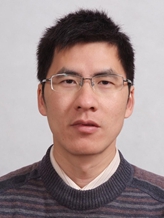
搜索网站、位置和人员

新闻与活动 活动信息
Physics Colloquium | Hongjun Xiang: Property analysis and simulation package for materials (PASP) and its applications
时间
2021年05月11日(周二)
14:00-15:30
地点
西湖大学云栖校区4号楼211会议室
主持
西湖大学理学院 刘仕 博士
受众
全体师生
分类
学术与研究
Physics Colloquium | Hongjun Xiang: Property analysis and simulation package for materials (PASP) and its applications
时间:2021年5月11日(周二) 14:00-15:30
Time:14:00-15:30, Tuesday, May 11th, 2021
主持人: 西湖大学理学院 刘仕 博士
Host:Dr. Shi Liu, PI of School of Science, Westlake University
地点:西湖大学云栖校区4号楼211会议室
Venue:Room 211, Building 4, Yunqi Campus
主讲嘉宾/Speaker:

向红军 教授
复旦大学物理系、物质计算科学教育部重点实验室
主讲人简介/Biography:
Dr. Hongjun Xiang is a full professor at Physics department in Fudan university since 2009. He got his bachelor degree (in 2001) and PhD degree (in 2006) from University of Science and Technology of China. From 2006 to 2009, he worked as a postdoc in NC state university and National Renewable Energy Laboratory. Prof. Xiang focuses on the research in the field of computational condensed matter physics, and has done leading works in the establishment of theoretical models of quantum materials and development of new methods. The main achievements include: (1) He proposed a unified model of spin-order induced ferroelectricity and a four-state method to calculate the strength of magnetic interactions and magnetoelectric couplings. The four-state method not only was adopted by more than 30 research groups, but also enables the unified model to have quantitative prediction capabilities. With this model and method, the origins of multiferrocity in several materials were clarified. (2) He developed a software package, namely, PASP (Property Analysis and Simulation Package for materials) that integrates several methods in the field of material simulation and design. Using this software, he predicted that there may exist a quantum spin liquid (QSL) state in the high-spin S=3/2 monolayer system, which paves a new avenue for finding the QSL state. This work was selected as the Editors' suggestion paper and cover of the PRL journal. PASP has been adopted by other research groups such as the groups in Northwestern University and Temple University.
Prof. Xiang has published more than 100 papers as the first or corresponding author, including 21 PRL, 2 Nature Comm., 1 Nat. Mater., 2 Phys. Rev. X. Since Elsevier launched the selection in 2014, the applicant is selected as one of Most Cited Chinese Researchers every year. In 2018, he was awarded the National Science Fund for Distinguished Young Scholars from NSFC and the ICTP prize from International Centre for Theoretical Physics for the reason that “Hongjun Xiang developed first-principles based computational methods addressing a vast variety of problems, including low-dimensional materials and multiferroics, where his approach has become standard in the field”.
讲座摘要/Abstract:
We have developed a software package, namely, PASP (Property Analysis and Simulation Package for materials), to analyze the structural, electronic, magnetic, and thermodynamic properties of complex condensed matter systems. Our package integrates several functionalities including symmetry analysis, global structure searching methods, tight-binding approach, machine learning algorithms, effective Hamiltonian methods, and Monte Carlo simulation methods. In conjunction with first-principles calculations, PASP has been successfully applied to diverse physical systems. For example, we predict that a Pb-free hybrid organic-inorganic perovskite N(CH3)4SnI3 with non-polar molecular cation has strong ferroelectricity and a two-dimensional hybrid perovskites BA2PbF4 (BA=C6H5CH2NH3+) displays in-plane ferroelectricity with a high Curie temperature, predict a possible Kitaev quantum spin liquid state in epitaxially strained Cr-based monolayers with a large S = 3/2 spin value, propose a novel EPDQ mechanism that realizes the electric-field (E) switching of magnetic topological charge (Q) in a controllable and reversible fashion, through the mediation of electric polarization (P) and Dzyaloshinskii-Moriya interaction (D).
讲座联系人/Contact:
理学院 吴老师 wuyunqin@westlake.edu.cn

















